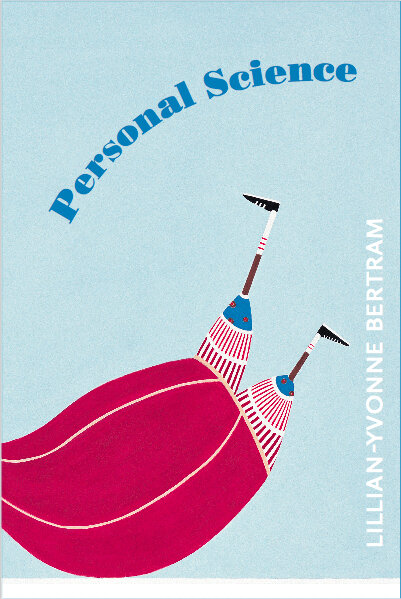Considered an emerging leader in the field of AI writing and literature, Lillian-Yvonne Bertram is co-editor of the newly released anthology Output: An Anthology of Computer-Generated Text, 1953-2023, published by The MIT Press and Counterpath. Bertram also recently published the AI-written chapbook A Black Story May Contain Sensitive Content, winner of the DIAGRAM/New Michigan Press Chapbook Prize.
Bertram’s most recent book of poetry is Negative Money (Soft Skull Press, 2023), which was a finalist for the New England Book Award. Their previous book, Travesty Generator (Noemi Press, 2019), won the 2018 Noemi Press Poetry Prize and the Poetry Society of America’s 2020 Anna Rabinowitz prize for interdisciplinary work, was longlisted for the 2020 National Book Award for Poetry, and was a finalist for the National Poetry Series. Their other books include Personal Science (Tupelo Press, 2017); a slice from the cake made of air (Red Hen Press 2016); and But a Storm is Blowing From Paradise (Red Hen Press, 2012), chosen by Claudia Rankine as the winner of the 2010 Benjamin Saltman Award. Their new chapbook, written with AI, is called A Black Story May Contain Sensitive Content and won the 2023 Diagram/New Michigan chapbook contest.
Bertram’s other publications include the chapbook cutthroat glamours (Phantom Books, 2012), winner of the Phantom Books chapbook award; the artist book Grand Dessein (commissioned by Container Press), a mixed media artifact that meditates on the work and writing of the artist Paul Klee and was acquired by the Special Collections library at St. Lawrence University. They collaborated with the artist Laylah Ali for the exhibition booklet of her 2017 art show The Acephalous Series.
Bertram has published poetry, prose, and essays in numerous journals. Their honors include a 2017 Harvard University Woodberry Poetry Room Creative Grant, a 2014 National Endowment for the Arts Poetry Fellowship, finalist nomination for the 2013 Hurston/Wright Legacy Award, a Vermont Studio Center Fellowship, and fellowships to the Bread Loaf Writers Conference, Cave Canem, and others. Their essay “To find kisses pressed in books: 100 Years of Gwendolyn Brooks” was featured on the Poetry Foundation’s website in the fall of 2016, where they have previously blogged for Harriet, the Poetry Foundation’s blog.
In an interview with the National Endowment for the Arts, they were asked what led them to including technology in their arts practice: “I have always been at least tangentially interested in the role technology could play in an arts practice, though I did not always know how or in what way, or even what types of technology would be suitable for creative writing. I have taken cues from the history of innovative and avant-garde writing practices, where practitioners in groups like the Oulipo or Dada were using randomization–like throwing dice–to choose words and phrases for poems. Something like a dice throw or generating random numbers can easily be approximated by a computer program, allowing writers and artists to use these previously analog methods on a larger scale. My first experiments with computer coding and programming involved composing poems using randomized dice throws. The more I learned, the more it sort of took off from there!”
Bertram holds a PhD in Literature & Creative Writing from the creative writing program at the University of Utah, among degrees from Carnegie Mellon University and the University of Illinois at Urbana-Champaign. They direct the MFA in creative writing program at the University of Maryland where they are affiliate faculty at the Artificial Intelligence Interdisciplinary Institute at Maryland (AIM). They have previously taught at the University of Massachusetts-Boston, St. Lawrence University, Ithaca College, and Williams College, and directed the Chautauqua Institution Writers’ Festival.









